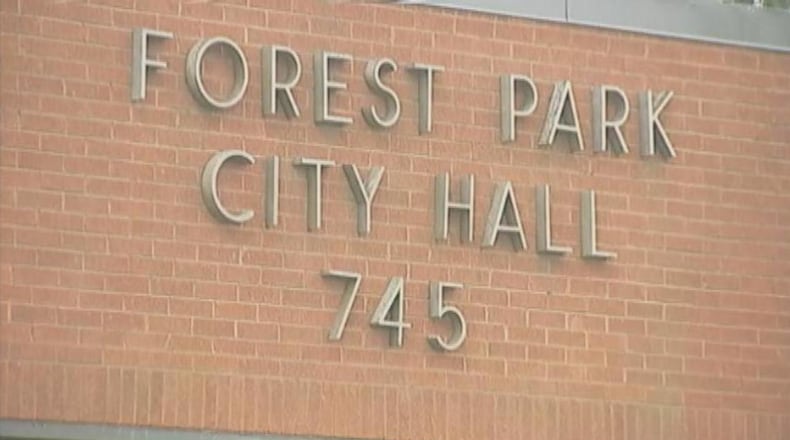A third former employee of the Forest Park Police Department filed suit this week, claiming he faced racism in the department.
The first two plaintiffs — fired police chief Dwayne Hobbs and fired Maj. Chris Matson — said the city fired them because they are white officers in a department that officials intended to make majority-Black. Fired deputy police chief Antonio Fletcher, who filed suit Tuesday in U.S. District Court in Atlanta, alleges that he was discriminated against him because he is Black.
Mayor Angelyne Butler declined to speak on a pending suit. “But as with the others,” she said, “this too is a farce.”
Fletcher was hired in December 2019 to be deputy chief. Quickly, Fletcher alleges, things soured.
In the first week of January 2020, Police Chief Nathaniel Clark was named interim city manager. That meant Fletcher had to do his job as well as the duties of the chief, according to the suit. But Fletcher says he wasn’t given the 10 percent raise the city traditionally gave to employees filling in for department heads. The suit claims two other departments had interim heads at the same time who were white, and they received the 10 percent raise. The white workers also had their titles changed to reflect that they were interim department heads, while Fletcher didn’t see his title bumped up, the suit says.
Fletcher’s suit appears to complicate the narrative presented by the other two who sued. Hobbs and Matson, who had nearly 80 years experience at the department between them, claimed things changed in the Clayton County city’s government when its elected leadership flipped from mostly white to mostly Black. The city is majority Black.
Hobbs, who’d denied allegations of racial profiling and surveilling council members, was terminated by the council moments before he thought he was to receive a generous retirement package. Officials said they wanted to go in a “different direction,” which Hobbs claims meant they intended to hire a Black chief. He was replaced with Clark, who is Black. Matson, who the city says was let go because he mishandled the sell-off of excess bullets, claimed in his suit that he was fired after noticing that Clark seemed unfairly focused on Black recruits over others.
READ: South Georgia prosecutor with decades of misconduct accusations resigns
READ: Georgia prison workers told of plan to privatize health care; hundreds of jobs in limbo
READ: GBI exhumes body of deacon murdered at Georgia church in 1985
City leaders have said anyone who was fired deserved to be, and any allegations that they’re against white employees are false, clearly undercut by the fact that there are still some white city officials.
The city hasn’t specifically addressed Fletcher’s allegation of racism against him as a Black man. Fletcher declined to say if he had an opinion on the previous two lawsuits. “I am not at liberty to say how others were treated,” he said in an email to The Atlanta Journal-Constitution.
Fletcher’s suit claims another factor was also at play in his firing.
In spring 2020, Fletcher says he noticed officials, especially Clark, favoring Sgt. Kelli Flanigan and treating her better than other employees. Fletcher complained to Clark and pulled Flanigan aside to talk. Flanigan then accused Fletcher of sexual harassment and creating a hostile work environment, charges of which the human resources department cleared him, the suit says. Flanigan, who resigned in October, said her complaint about Fletcher actually was only about him allegedly creating a hostile work environment; it wasn’t related to sexual harassment.
When Clark let Fletcher go in June, he allegedly complained that he and Fletcher hadn’t been getting along. Apart from that, Fletcher says he received no reason for his termination.
Fletcher, who asks for a jury to decide what he’s owed, worked for nearly 20 years in policing in the state of Georgia. He’s now moved to Talladega, Alabama for work.
“Georgia has always been my home, and I always planned to stay in my state,” he said over email. “The uncertainty caused by this incident and the transition from Georgia to Alabama has been a burden on me and my family.”
About the Author
The Latest
Featured


